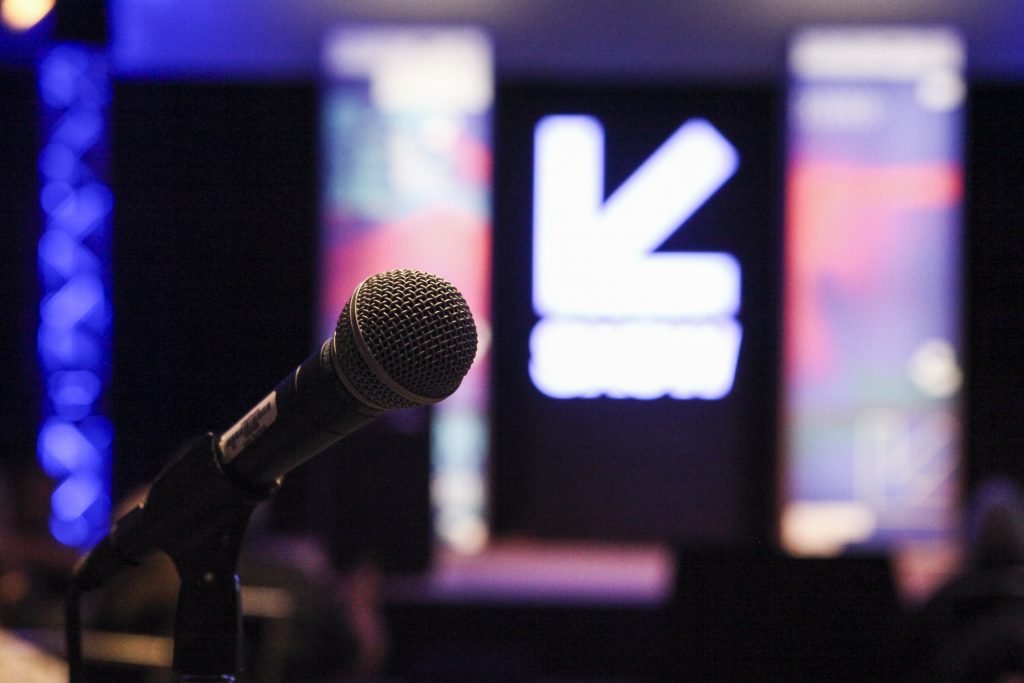
SXSW | Photo by Samantha Burkardt
The sky is black with chickens coming home to roost for the platforms and apps that once loved to launch at SXSW. (This year, as Casey Newton pointed out in an authoritative Verge article, none did.) Fake news, privacy, surveillance, and algorithms were only some of the buzzwords around which alarmed panelists congregated. Tech was finger-pointing at itself. VC Hemant Taneja summarized the problem with a surveillance-driven digital economy: “Bias is profitable.” There was more handwringing than answers.
Bad news. Facebook sent Alex Hardiman (ex-New York Times, now head of Facebook’s news products) to say—to a crowd full of wary journalists—that Facebook realizes now that it didn’t distinguish well enough between quality and crap. That was “problematic,” she said. New algorithmic tweaks prioritize time spent rather than clicks. Meanwhile, YouTube CEO Susan Wojcicki announced that YouTube would link any conspiracy-theory video to relevant Wikipedia snippets (but apparently without informing Wikipedia). And Ev Williams, co-founder of (among others) Twitter said in a keynote, “We worked on assumptions that didn’t account for bad behavior. Now we’re catching on to that.”
No, media literacy is not the answer. Digital-culture scholar danah boyd delivered a blistering address to SXSWedu attendees, critiquing the notion that media literacy can be an answer to fake/bad news. Media literacy as it’s typically taught doesn’t get down to the viewpoint through which people interpret their information. And “critical thinking” claims can set people up. In fact Russia Today’s “question more” campaign did a great job of undermining confidence in well-established truths. The “red pill” discourse of white supremacists lures recruits into a racist bubble.
Killing journalism? Alex Hardiman also noted that Facebook is working with selected news publishers to improve subscription rates. That didn’t stop CNN’s Brian Stelter from asking if Facebook shouldn’t kick back to news organizations a little bit of the advertising dollars it’s sucked out of the industry.
Privacy and security. There was expectable handwringing about privacy, and some chat about developing applications and business models that deliver privacy. But in panels as diverse as workplace security, travel security and on the streaming environment for television, the solutions involved ever-more-sophisticated data mining. Identifying a bad actor at work/school? Better integration of biometrics and other data streams. Better recommendations? Tweak the data flows. One of the streaming panelists simply said, “Privacy is over. It’s gone.” But privacy snuck in the backdoor in conversations about hacking and data security. Whether it was medical-records security, the Internet of Things, password management, the challenge was finding a (temporarily) secure interface to a digital environment ordered by surveillance.
Regulation? With the European Union taking measures to rein in Google, protect data and individuals’ control over their online reputation, and tax platforms’ profits in the EU, discussion of regulation bubbled up at SXSW too. Government was in the mix. Elon Musk came right out and said artificial intelligence was more dangerous than nuclear weapons, and needs regulation, from a public body. Mark Warner (D-Va.) got a lukewarm reception for his Honest Ads Act, which would require platforms to identify advertising paid for by foreign agents.
But tech pushed back, too. Reddit CEO Steve Huffman admitted that Russian electoral manipulation benefited from Reddit but stood sturdily on the First Amendment to assert that any government regulation would be inappropriate. (Reddit has also not described specific measures it has taken to control the problem.) Evernote founder Phil Libin meanwhile considered the downside of current tech as a design problem; he embraced the capacities of technology designers to design for more responsible and ethical purposes.
So overall, it seems like at SXSW we all agreed that the Internet is no longer really the Wild West, unbridled and strident ebullience is no longer a good look, worry is the new cool, but we haven’t yet coalesced around any good systemic answers.
